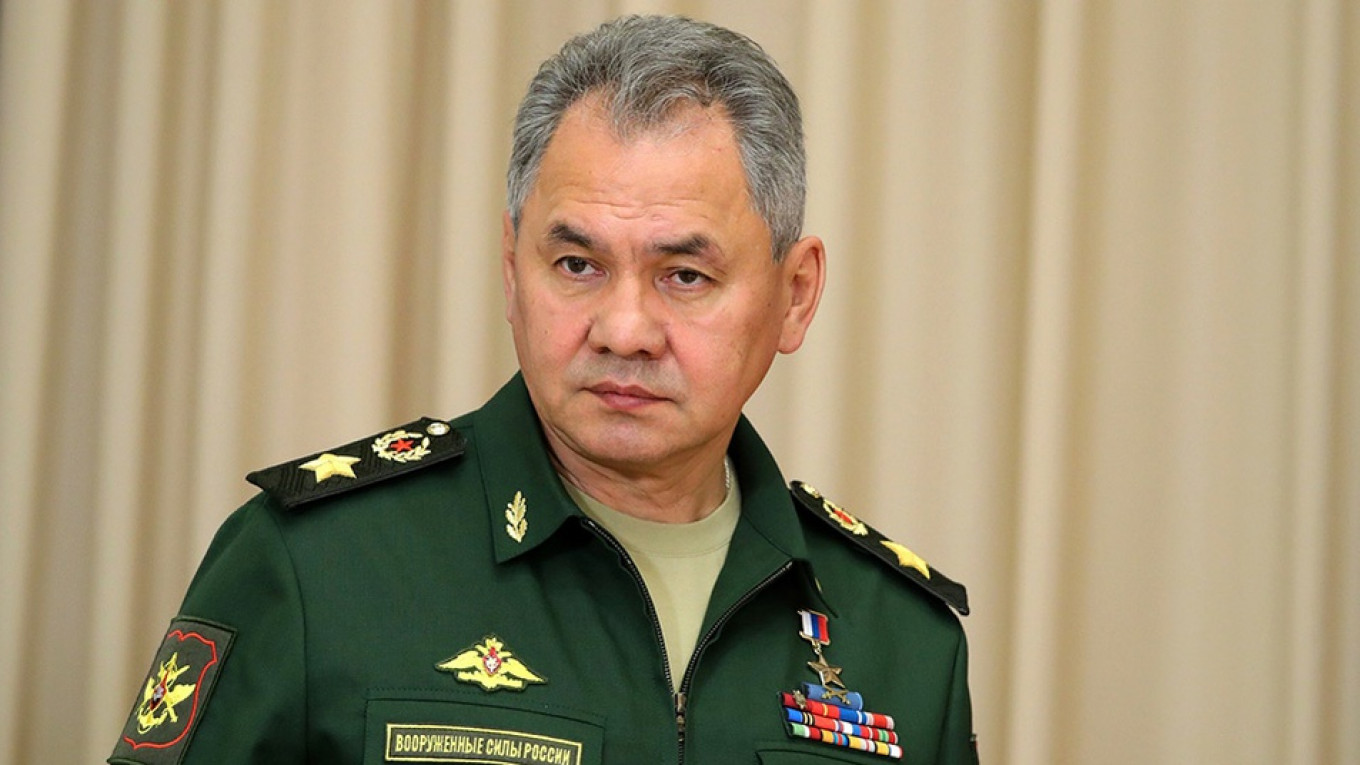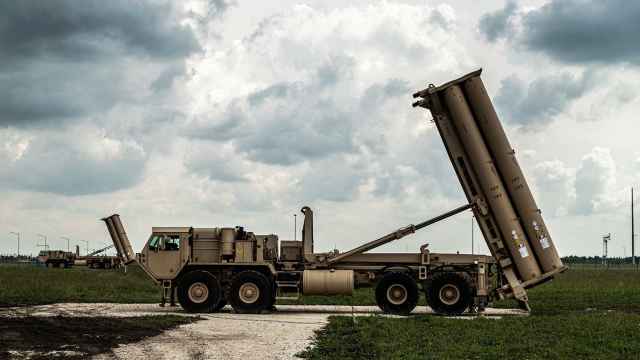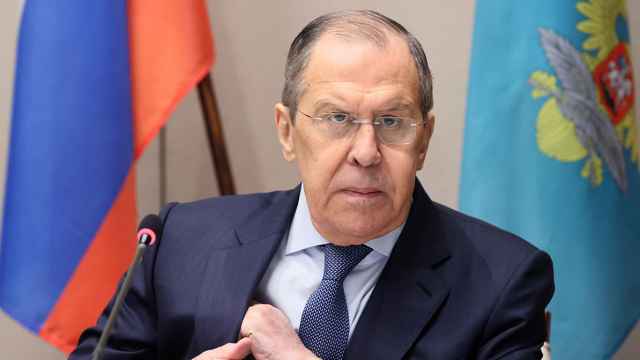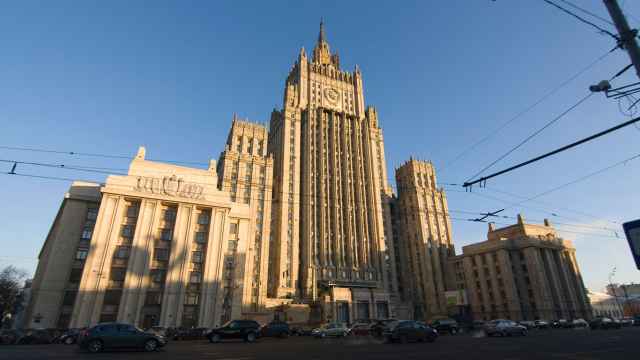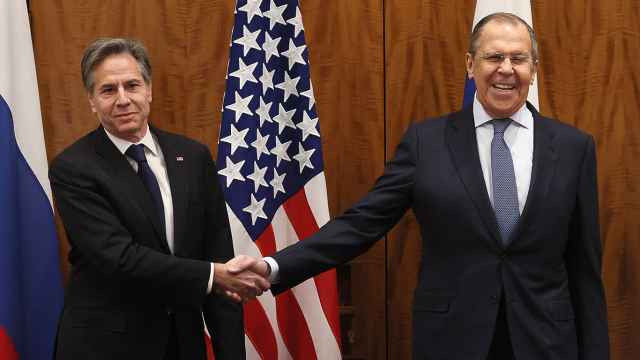Russia's defense minister, in a newspaper interview published on Wednesday as NATO began a two-day summit, criticized the United States and the U.S.-led military alliance for moving up forces and bases close to the Russian border.
"I have long wanted to give American colleagues a globe so they can look at it and explain why the declared 'enemies of America,' are located in the Middle East and the Far East and all their military bases and forces are snuggled up to Russian borders," Sergei Shoigu was quoted as saying in the interview with Italian newspaper Il Giornale .
Shoigu appeared to be referring to the U.S. missile defense shield, which Washington says is intended to protect against attacks by Iran. Elements of that system are located in eastern Europe, near Russia's western borders.
He said that NATO expanded eastwards to Russian borders in spite of promises given to Soviet leaders during German unification.
Shoigu also said Russia was ready to return to the idea of supplying advanced S-300 ground-to-air missiles to Syria but Damascus had not made any requests to Russia.
"Today, after the aggression of the United States, Great Britain and France against Syria, showing the need for a modern air defense system for Syrians, we are ready to return to looking at this question," Shoigu was quoted as saying.
Russia in April hinted it would supply the weapons to President Bashar al-Assad, over Israeli objections, after Western military strikes on Syria.
But, after a visit to Moscow by Israeli Prime Minister Benjamin Netanyahu in May, Izvestia newspaper cited a top Kremlin aide as saying that Russia was not in talks with the Syrian government about supplying the missiles and did not think they were needed.
A Message from The Moscow Times:
Dear readers,
We are facing unprecedented challenges. Russia's Prosecutor General's Office has designated The Moscow Times as an "undesirable" organization, criminalizing our work and putting our staff at risk of prosecution. This follows our earlier unjust labeling as a "foreign agent."
These actions are direct attempts to silence independent journalism in Russia. The authorities claim our work "discredits the decisions of the Russian leadership." We see things differently: we strive to provide accurate, unbiased reporting on Russia.
We, the journalists of The Moscow Times, refuse to be silenced. But to continue our work, we need your help.
Your support, no matter how small, makes a world of difference. If you can, please support us monthly starting from just $2. It's quick to set up, and every contribution makes a significant impact.
By supporting The Moscow Times, you're defending open, independent journalism in the face of repression. Thank you for standing with us.
Remind me later.


